The seventh day of Venice77 is illuminated by the darkness of Notturno, the third Italian film competing in the main section of the competition, the last work of Gianfranco Rosi who won the Golden Lion here in 2013 with his Santo GRA, the last Italian to obtain the coveted Venetian award.
The film, very hard, was shot for 3 years along the thin lines that divide the war zones from those where you try to rebuild an existence worthy of being called such. A journey in the deep Middle East, in Iraq, Kurdistan, Syria and Lebanon, up to the heart of the suicide/homicide ferocity of ISIS.
"In the Middle East, during the filming of the film, I met people living in war zones. I wanted to tell the stories, the characters, beyond the conflict. I stayed away from the front line, but I went there where people are trying to patch up their lives. In the places where I filmed, the echo of the war arrives, one feels its oppressive presence, that weight so heavy that it prevents one from projecting oneself into the future. I tried to tell the everyday life of those who live along the border that separates life from hell" said the director.
Notturno is not just a film, but a punch right in the face. Not even a war scene appears in Rosi's film. But this "absence" in no way limits the perception of the dimension of the drama that a conflict brings with it, the effects it has on those who have not chosen war but are forced to suffer it. But war is there and its presence is in the terrified eyes of children, in their inability to express themselves in words, in the mournful litanies of mothers who have lost their children who mingle with the voice of a street singer who sings praise to the Most High, the cities that live madly even at night, some psychiatric patients who put on a play to exorcise those political choices that determine their lives: different stories that manage to find a magical unity along the paths of narrative that goes beyond areas and geographical divisions, becoming universal. In fact, Rosi never explains where the scenes we see were shot, precisely to avoid any geographical and racial, political reference.
All around these stories the vision of the signs of destruction and violence let us perfectly perceive how this violence marks the soul: a nocturne that is the darkness of exteriors and dark places without any light. But the director puts humanity in the foreground, the one that awakens every morning at dawn leaving behind the nocturnal hell, hoping that the darkness is forever torn by light, but instead it is an infinite nocturnal.
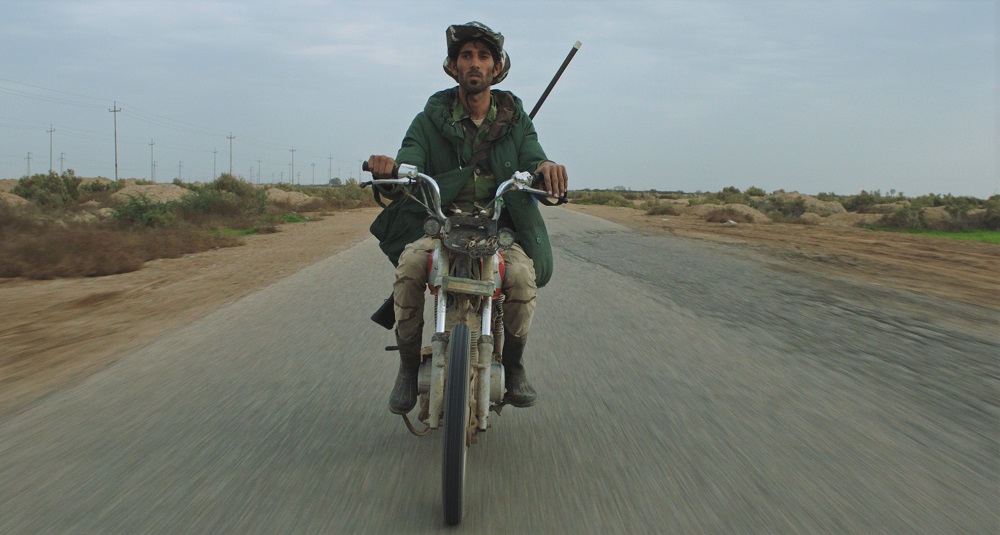
Rosi spent 3 years meeting people and stories, eyes and souls, first establishing a contact and then being able to film, because it was not enough to immortalize with the eyes, but it was necessary to do it with the heart. Many of the scenes, in fact, are aesthetically perfect, as if the image subjected to if the nature of the story, the truth of the representation. And this is the most frequent criticism of film and direction. In reality, behind this careful choice there is not a response of mere visual harmony, but the director's desire to restore to us the same strength and splendor of those subjects that had so fascinated him. Like a declaration of affection towards those people and those stories brought to us through the power of images and not words.
An experience undoubtedly strong that lived by Rosi that gives us back with every vibration felt by his soul in those places. And to the difficult question, "What remains of that long experience?" the director answers: "When I came home I was no longer the same person, I do not know if I have changed for the better or for the worse, but I certainly felt a post-traumatic stress. I felt a deep sense of love for the people I met. I hope that the audience will grasp the sense of life and depth of the characters, that a correspondence and identification with them will be created as it happened to me. Without knowing the language and those stories, I had a great identification. The film is born where the breaking news is interrupted. I wanted to tell something more intimate to bring out the strength of the characters, their emotional strength. I am left with the sense of suspension of the future. In the foreground of the child Ali in the film and the question of what future he will have, we read a suspended future that - as I was saying - is what we are living in this moment".
And yet, in this documentary film, without history but with a thousand stories that remain in the eyes and souls of the spectators, there is no pietism or rhetoric because Rosi's working excellence, to all intents and purposes the best Italian documentary filmmaker, is revealed in his ability to escape in every scene of the film the pornography of pain, which unfortunately fills the TV sets of everyday life to the most modern social media.
Notturno is film, documentary, story, but also a sort of diary of a traveler who wanted to share the wonder of his experiences, the charm of the places he visited and the history of the people he met. Like a modern Marco Polo who in his Il Milione told the beauty of the Orient with its landscapes and its people. And Venice is the right place for Polo and Rosi to meet.
For public and critics Notturno is already Golden Lion. We will see on Saturday if the jury presided over by the divine Blanchett will be of the same opinion.
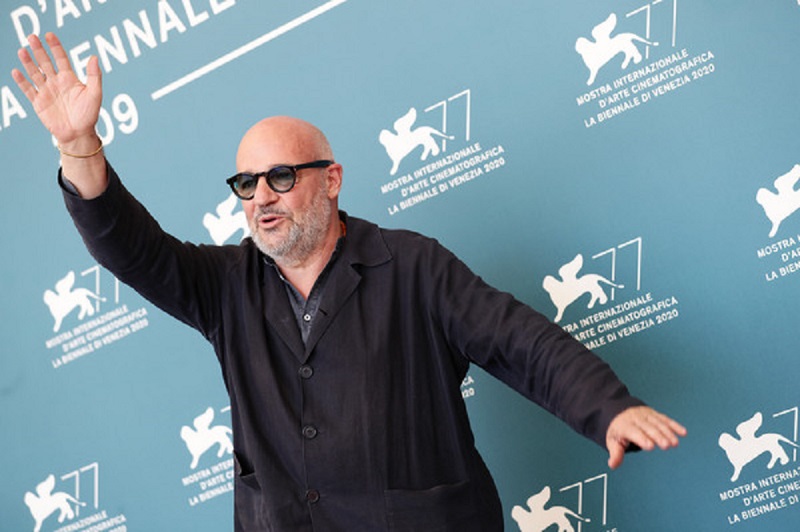
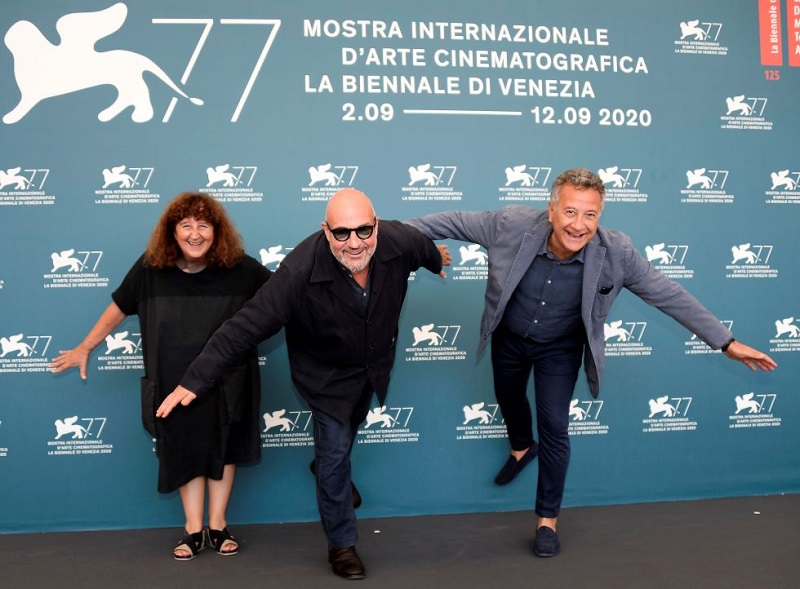
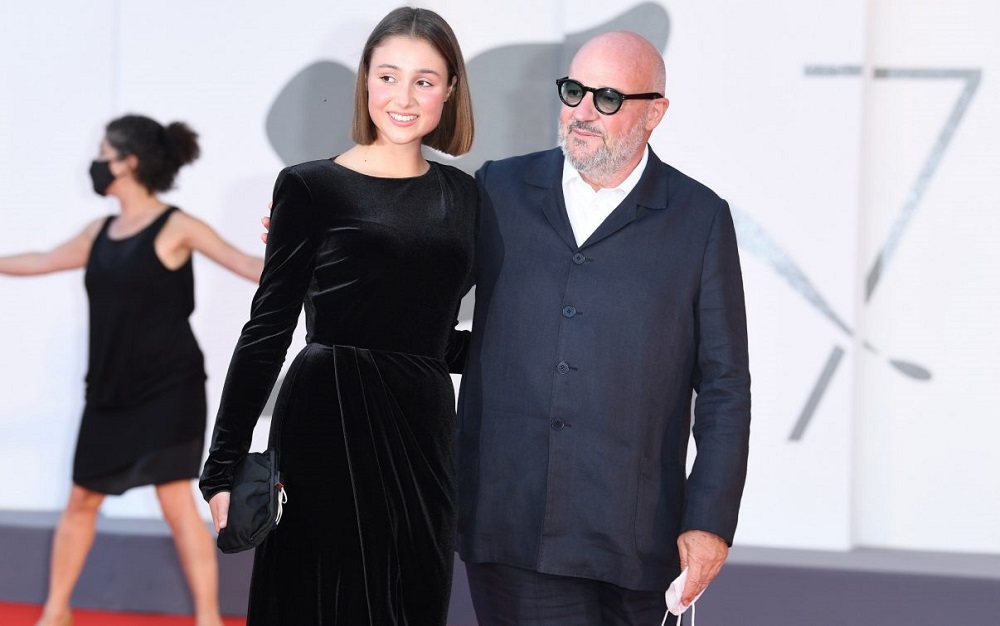
Another feature film in competition yesterday is Laila in Haifa by Israeli director Amos Gitai. The film is a snapshot of the contemporary world where diversity, gender, religion, color, create a tear that brings hatred and destruction, leaving no room for hope of union and solidarity.
But Gitai's film wants to be a demonstration of how diversities can coexist "without necessarily killing or destroying" each other, and it is art that offers a plan of encounter for expressions of different identities. The film is played out all in the time of one night, in an all-in-one setting. The places are Haifa, the Israeli city and birthplace of the director, and the Fattoush, a place whose name recalls that of a side dish of Middle Eastern cuisine in which very different flavors are mixed together, creating a special harmony on the palate. The right place to combine different elements. So this pub becomes, as the director declares, "a refuge for the most desperate people: men and women, straight and gay, Jews and Arabs, radicals and moderates", universes apparently very distant from each other that manage to unite their loneliness in the darkness of the night, talking and listening to each other. The heart of the club is Laila, a fascinating and vibrant woman whose name in Hebrew means night. And as the mantle of the night envelops five other women who work with her: their stories and personal relationships will come together challenging each category and classification.
The camera moves sinuously among the patrons of the club, among the different sounds of the languages spoken and returns the image of people free and free from preconceptions. But it is only appearance because it is the impossibility of overcoming the deepest lacerations, such as racial and sexual ones, that comes out in the end.
But the Fattoush for the director becomes the last bastion where Palestinians and Israelis manage to meet not to fight each other but to learn a peaceful coexistence: differences meet and clash, creating moments of amalgam and opposition peaks, but all played out on the level of life and never on the level of death.
The film begins with a sequence plan that chases a man behind the wheel of his car. It is night. The man is robbed and brutally beaten: he is an Israeli photographer and activist. He is accompanied inside the Fattoush: there he is about to inaugurate his personal photographic exhibition. This tension, which opens the film and which is very well represented, will accompany only a part of the narrative that will gradually give space to many characters and their stories that will rotate between them as in an often confused circle that absorbs strength and energy in its coils, making the film at times boring and stereotyped. So many themes, too many that, even if they have the best intentions, risk to remain a babel of languages that are difficult to identify and understand, in which the themes are not able to be well valorized, but penalized by a little subdued confusion.
Lost opportunity. Pity!
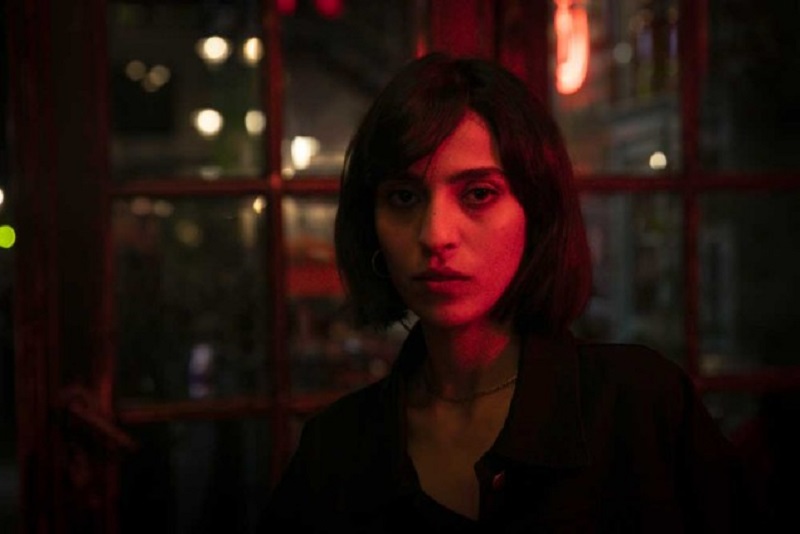
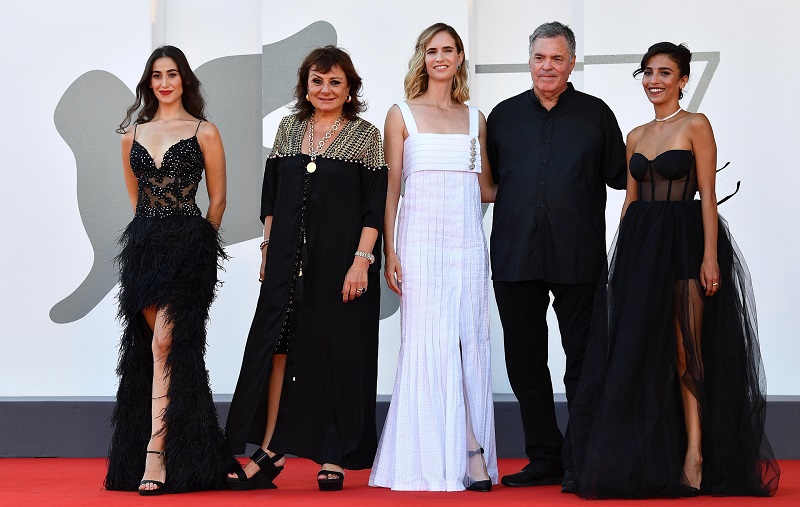
"My friends were worried that I would receive the Lion together with Tilda Swinton, who is much more beautiful than me. Fortunately, the ceremonies are distinct".
This is how Chinese director Ann Hui made her debut at the Golden Lion for Lifetime Achievement ceremony, with the self-irony that only great people can have.
"One of the most appreciated, prolific and versatile directors on the Asian continent, whose career spans four decades and spans all film genres. Immediately recognized as one of the pivotal figures of the so-called Hong Kong New Wave (a film movement that revolutionized Hong Kong cinema between the late seventies and eighties) has directed films of very different genres", these are the words expressed for her by the director Alberto Barbera.
After receiving the award, it was the turn of the presentation of his latest work Di Yi Lu Xiang - Love after Love, in the Out of Competition category. The film is an adaptation of the first published short story by Zhang Ailing (Eileen Chang) and brings to the screen the story of the young Ge Weilong who travels from Shanghai to Hong Kong to complete her education. In order to pay for her studies, she asks her aunt, Mrs. Liang, for help. The girl will soon discover that her aunt leads a rather equivocal life. Little by little, however, Weilong becomes a puppet in the hands of the woman, who involves her in the enticement of rich and powerful men, until the young girl is attracted to playboy George Qiao. But the man's purpose is to marry a rich girl to maintain his luxurious lifestyle.
In this regard Hui declared her "I like the plot, because it is the fierce story of a confused and hypocritical environment in Hong Kong, just before the Second World War. Here, a tropical and primitive world wears elegant and eccentric clothes, while the most melodramatic emotions and relationships are expressed in a direct way, as if they were normal. I wanted to give voice to this unique environment, instead of directing another sophisticated love story". A nostalgic look at Hong Kong in the 1940s but which, unlike what had been imagined, has little to do with the current political situation, as the director herself says "What I think of today's political situation did not go directly into the film and I cannot comment too much on this political dimension because there is a Chinese investor in the film and the film has passed censorship in China with very few cuts. What happened with the umbrella revolution while we were shooting somehow entered into the film's climate but with lightness, especially the way young people opposed the system".


The relationship between cinema and war is at the center of the film Guerra e Pace by directors Massimo D'Anolfi and Martina Parenti, presented for the Orizzonti Section. A story of more than 100 years in which war and cinema met. Four chapters - remote past, near past, present and future - that reconstruct a visual memory from the early twentieth century to the present thanks to archive material preserved by four major institutions such as the Istituto Luce in Rome, the Crisis Unit of the Italian Foreign Ministry, the Ecpda (the Military Archives and Image Agency of the French Ministry of Defence) and the International Red Cross. The film also gives us an interesting study on the diplomatic policies that were at the basis of the Italian and international missions, but also a tribute to the cinema that becomes an advocate of war because it is often used as propaganda and peace for its attitude to the conservation of the material. War and Peace questions the consequences of war, the meaning of history and the preservation of memory for the benefit of future generations.
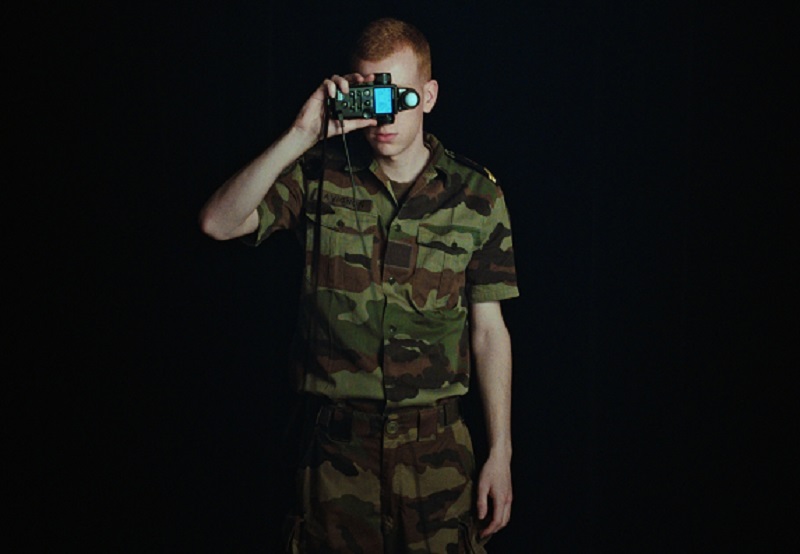
Two films Out of Competition worthy of note.
In a special screening, Antonio Castaldo's Italian Fuoco Sacro was presented.
And there is no better place for the projection of a film about fire and the extraordinary work of the Fire Brigade than Venice, a city that has often had to confront fire. How can we not remember that night of January 26, 1996 when the Gran Teatro La Fenice was destroyed and devoured by the flames of a fire that gave no escape. In everyone's eyes the darkness of that night brightened by fire and the shadows of the Fire Brigade that climbed the roofs with indefatigable dedication risking their lives to save Venice that seemed to have no escape. Above all Alfio Pini and his experience, thanks to which it was very well that that evening the flames could have taken the whole city away.
We are used to seeing them in emergency situations, facing catastrophes of every kind and nature, dominating water, air, fire and earth with vocation and a strong sense of duty.
Sacred Fire thus becomes the story of 50 years of history of our country that has seen many emergency situations, too many at the hands of man: from the misfortune of the Vojont dam in 1963, to the earthquakes of Molise and Abbruzzo, until the recent absurd tragedy of the collapse of the Morandi Bridge.
And it is a story told by the voice and especially by the eyes of those who fight these situations on the front line, a journey into their memories and emotions. Antonio Castaldo, Neapolitan director and before him also Firefighter, declared that "The history of the Firefighters is deeply linked to Italian history. The anxieties, the difficulties and the risks that Italy has run in its tormented journey have deeply and long marked the collective memory. And it is in these wounds, in these dramas, that the extraordinary generosity of those who have chosen to make their lives a mission for others shone. With Sacred Fire I wanted to honor all those men and women who with love and competence have made the National Fire Brigade Corps an Italian excellence recognized throughout the world".
A film, a documentary, an emotional journey, a beacon to illuminate their heroism.
Narciso em Férias by the directors Renato Terra and Ricardo Calilè a journey into the memories of the Brazilian singer-songwriter Caetano Veloso arrested by the military dictatorship in Brazil in 1968 following the approval of the Institutional Law n. 5, later renamed AI-5, after which many constitutional guarantees were suspended and special powers were given to the military government: it was the beginning of the most violent and repressive phase of the regime. The accusation that was made against Veloso was that of having altered the national anthem and supported some against the government. Since that day 54 days passed.
In those 54 days the singer-songwriter went through the hardest trial of his life. "Through an intimate and detailed portrait of the days spent in solitary confinement, he remembers and interprets the songs that marked the period of his imprisonment, as well as retracing the painful events lived and shared with other prisoners, such as his friend Gilberto Gil, who was arrested the same day. Caetano provides new information received from the dictatorial regime regarding the reasons for his imprisonment, revealing the dictatorship's opinion of him and shedding light on the arbitrary brutality that characterized that chapter of Brazilian history".
The images of the singer-songwriter sitting on a chair with only the void of a room with concrete walls around it become the fulcrum of the film, with moments of stasis alternating with ironic and moving sequences.
Narciso ém Ferias is the story of a crucial moment in the life of a man and an entire country, and a terrible example of the reaffirmation of slavery.
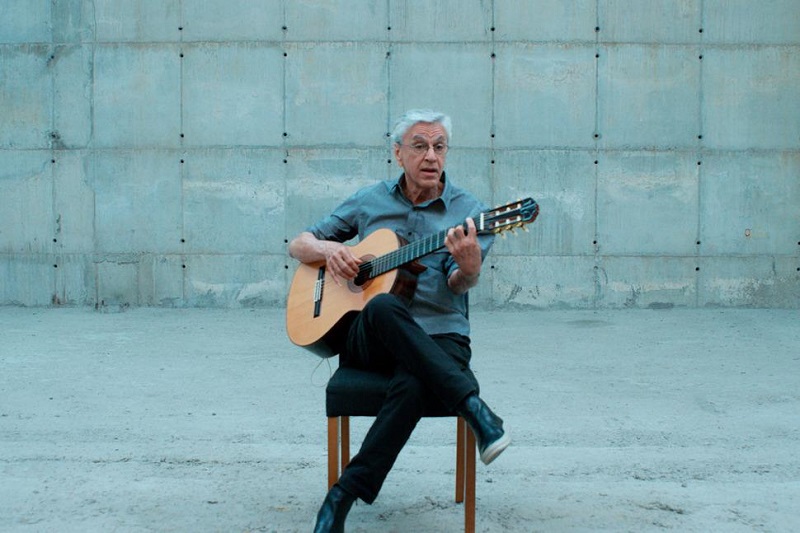
See you tomorrow with Day 8 of this Venice 77.










Lascia un commento